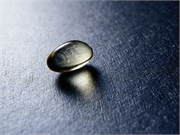However, marine n-3 supplementation appears to reduce recurrent heart failure hospitalization
THURSDAY, Nov. 14, 2019 (HealthDay News) — Neither vitamin D nor marine omega-3 (n-3) fatty acid supplementation significantly reduces the rate of first heart failure hospitalization, according to a research letter published online Nov. 11 in Circulation to coincide with the annual meeting of the American Heart Association, held from Nov. 16 to 18 in Philadelphia.
Luc Djoussé, M.D., Sc.D., from Brigham and Women’s Hospital and Harvard Medical School in Boston, and colleagues examined the effects of vitamin D and n-3 supplements on the incidence of heart failure hospitalization in a large, multi-ethnic cohort with 25,871 adults; 36 participants with prevalent heart failure were excluded.
The researchers found that first heart failure hospitalization occurred in 499 participants (240 events in the vitamin D group and 259 in the placebo group; hazard ratio, 0.96 [95 percent confidence interval, 0.78 to 1.11; P = 0.41] and 244 and 255 events in the n-3 and placebo groups, respectively; hazard ratio, 0.96 [95 percent confidence interval, 0.80 to 1.14; P = 0.61]). In a secondary analysis, rates of recurrent heart failure hospitalization did not differ between the vitamin D and placebo groups (341 versus 364 events; hazard ratio, 0.94; 95 percent confidence interval, 0.81 to 1.09; P = 0.44), while a significant reduction was seen with n-3 supplementation versus placebo (326 versus 379 events; hazard ratio, 0.86; 95 percent confidence interval, 0.74 to 0.998; P = 0.048).
“Exploratory analyses suggesting some benefits of n-3 fatty acids on recurrent HF hospitalization require confirmation in future trials,” the authors write.
Two authors disclosed financial ties to Quest Diagnostics, which measured serum 25-hydroxyvitamin D and serum omega-3 index at no cost; several pharmaceutical companies provided the study agents, matching placebos, and packaging.
Copyright © 2019 HealthDay. All rights reserved.








